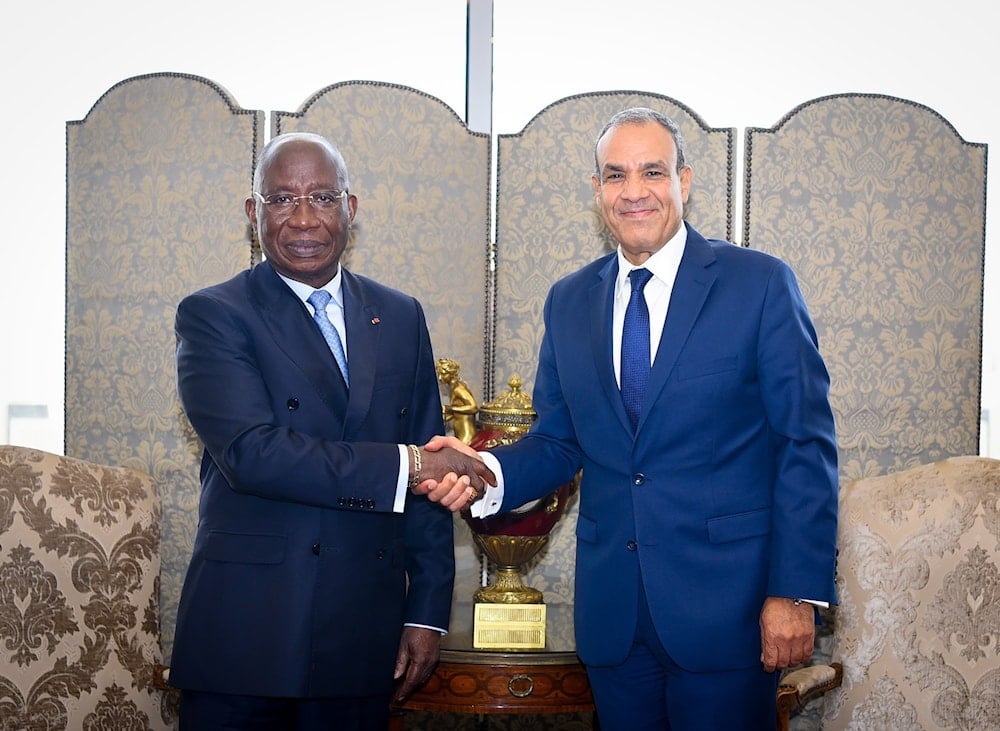Egypt vows to defend water interests under international law
Egypt and Côte d’Ivoire discussed Sahel security, counterterrorism, and regional stability during high-level talks in Cairo.
-

Egyptian Foreign Minister Badr Abdelatty (right) and Ivorian Foreign Minister Léon Kacou Adom during a joint press conference in Cairo on Monday, August 11, 2025. (Facebook/ MFAEgypt)
Egyptian Foreign Minister Badr Abdelatty warned that “Egypt stands ready to take any measures to safeguard its water interests, in line with international law.”
Speaking at a joint press conference in Cairo with Ivorian Foreign Minister Léon Kacou Adom, held as part of the third round of political consultations between Egypt and Côte d’Ivoire, Abdelatty said the talks addressed development challenges facing the Sahel and West Africa.
He added that cooperation in counterterrorism was also discussed, commending Côte d’Ivoire for its efforts in this field.
Abdelatty stressed that “Egypt attaches great importance to achieving security and stability in the Sahel and West Africa,” highlighting the impact of instability in these regions on neighboring states and on Egypt’s national security.
According to a statement from Egypt’s Foreign Ministry, the two ministers also reviewed the latest developments in the Middle East, the Horn of Africa, and the Red Sea, and explored ways to promote peace, security, and stability across the African continent.
The statement noted that both sides agreed to maintain coordination and consultation at bilateral and multilateral levels and to exchange endorsements in regional and international organizations.
For his part, the Ivorian foreign minister praised “Egypt’s pivotal role in supporting and building the capacities of countries in West Africa and the Sahel, as well as its determined efforts to broker a ceasefire in the Gaza Strip and facilitate the delivery of humanitarian and relief aid to the Palestinian people.”
Wider context
Egypt is facing an escalating water crisis fueled by rapid population growth, climate change, and upstream developments along the Nile, its primary water source. With over 95% of its freshwater supply coming from the river, the country remains highly vulnerable to any reduction in flow, particularly against the backdrop of ongoing tensions with Ethiopia over the Grand Ethiopian Renaissance Dam (GERD).
Rising temperatures, declining rainfall, and surging demand for agricultural and industrial needs are placing unprecedented strain on already limited resources.
Experts warn that without major reforms in water management, expansion of desalination capacity, and strengthened regional cooperation, Egypt could face severe shortages within the next decade, threatening food security, economic stability, and public health.
Read next: Egypt reaffirms 'firm stance' on Nile water rights amid regional talks

 3 Min Read
3 Min Read










